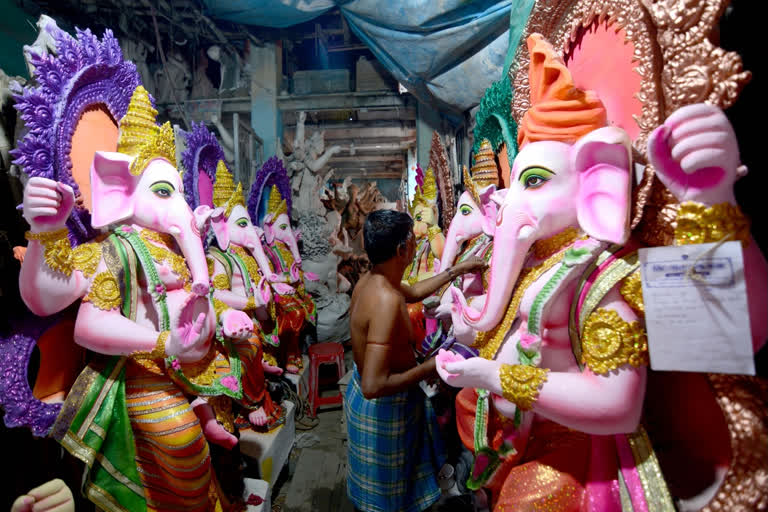Varanasi: Ganesh Chaturthi, also known as Vinayak Chaturthi, is one of the most popular Hindu festivals celebrated across India in which millions of people rejoice the birth of Lord Ganesha. This year the celebration will begin on September 2.
Ganesh Chaturthi is observed on the fourth day of the new moon fortnight of the Hindu calendar month of Bhadrapada and the 10-day festival ends on Ananta Chaturdashi.
Though the festival originated in Maharashtra but over the time the festival is celebrated with the same fervour in many parts of South India, Gujarat and beyond.
Yet, few people know the reason behind celebrating this festival. Bal Gangadhar Tilak, the father of Indian Unrest, was the man behind turning a household Ganesh Chaturthi celebration to a national event.
While Tilak tried to give an edge to the freedom movement, he along with others also attempted to bring an end to social evils and spread national unity. Overall, this festival has been playing an important role in national unity and integrity.
Talking to ETV Bharat, historian and professor Satish Kumar Rai told how the Ganesh Chaturthi festival started with the aim of connecting people with the freedom movement of the country. According to him, the British restricted the political congregation rallies in 1894 and during the time Tilak realized the vigour of national unity and integrity among people was slowly ebbing away. It was then when, Tilak transformed the annual domestic festival into a large, well-organized public event.
Tilak recognized the mass appeal of the Ganesha as "the god for everybody", and popularized Ganesh Chaturthi as a national festival "to bridge the gap between Brahmins and non-Brahmins and find a context to build a new grassroots unity between them", and generate nationalistic fervour among people in Maharashtra against the British colonial rule.
Tilak was the first to install large public images of Ganesh in pavilions in Pune.
When Brahmins in Pune showed their resentment over the installation of the large image again in the temple after 10 days as it was touched by every cast, Tilak established the practice of submerging the deity in rivers, sea or other pools on the tenth day.
"It served as a meeting ground for people of all castes and communities in times when the British discouraged social and political gatherings," Rai said.
Also Read: Strategic affairs expert rules out law and order deterioration in Assam over NRC



